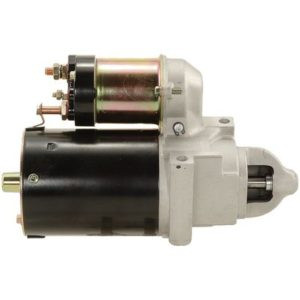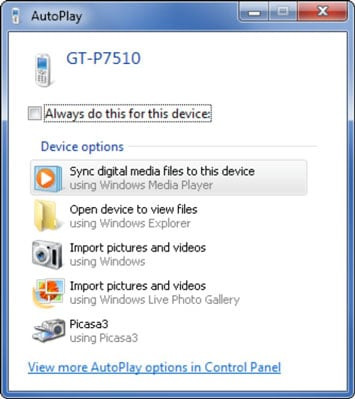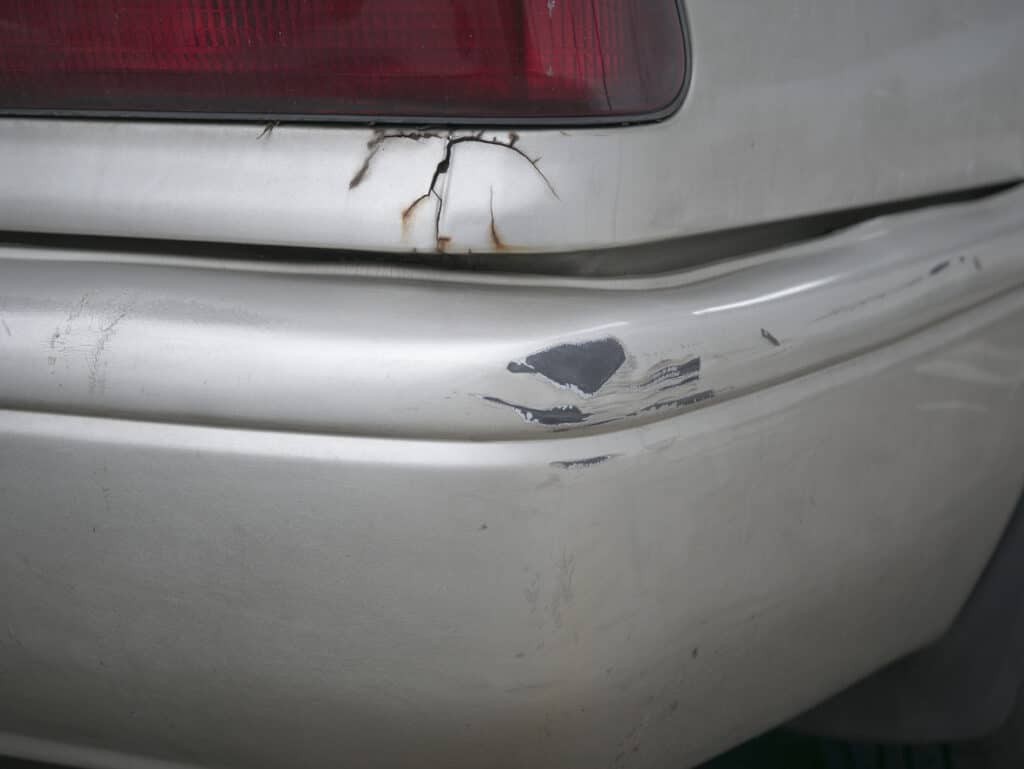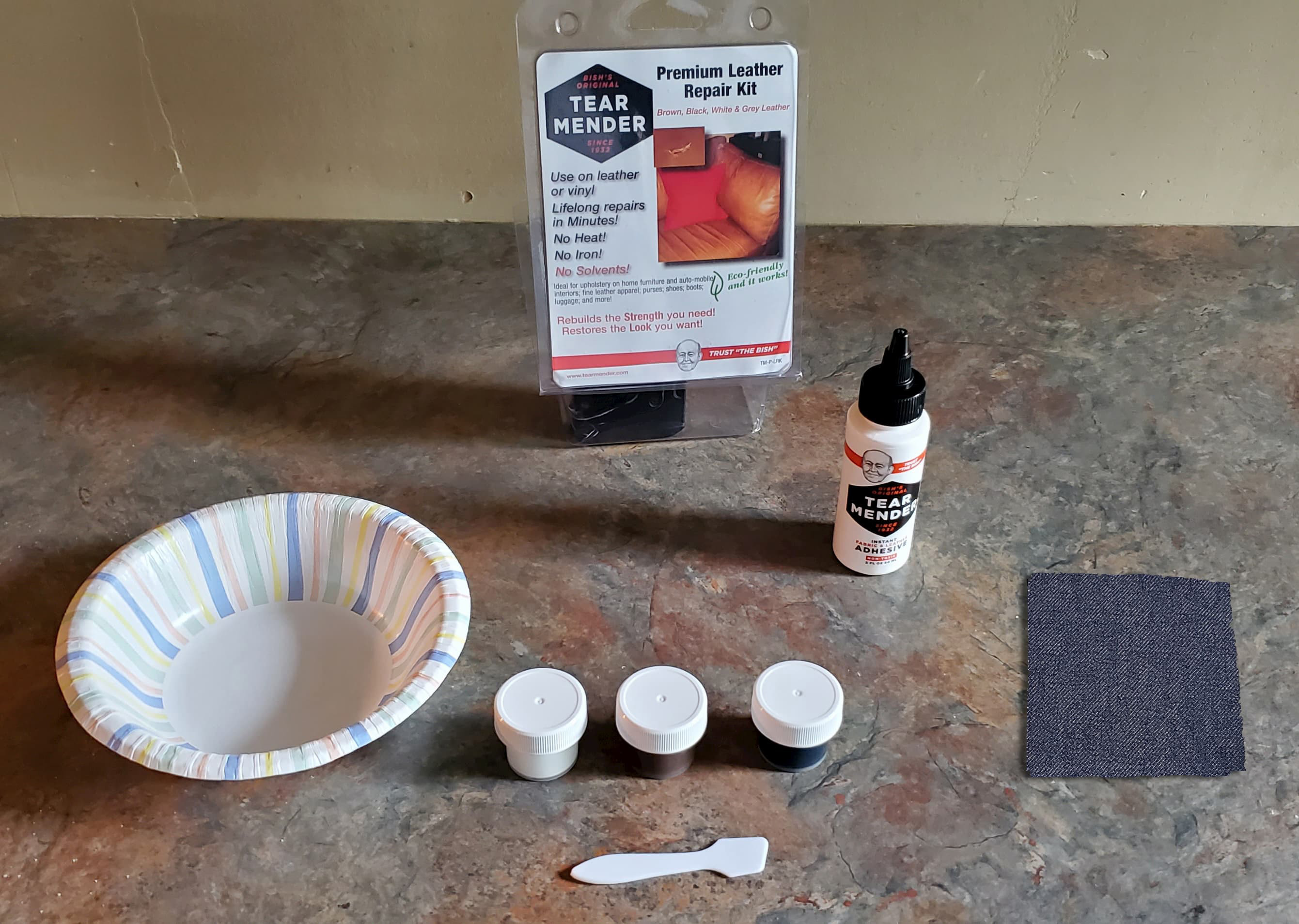How Much Does It Cost to Fix Your Car Starter?

Is your car struggling to start, leaving you stranded and wondering about the repair costs? Don’t worry; CARDIAGTECH.NET is here to help you navigate the expenses associated with fixing your car starter. We’ll break down the factors influencing the price, from parts to labor, and empower you with the knowledge to make informed decisions. Discover how to troubleshoot starter problems and explore cost-effective solutions for your vehicle’s starting system. Let’s dive into starter motor repair, car starter replacement cost, and automotive starter issues.
1. Understanding Starter Replacement Costs: A Comprehensive Breakdown
The cost to fix your car starter can vary significantly depending on several factors. These include the make and model of your vehicle, the type of starter needed, labor costs, and whether you opt for a new or rebuilt unit. Let’s explore these elements in detail to give you a clearer picture of the potential expenses.
1.1. Cost of a New Starter Motor
A new starter motor typically ranges from $80 to $350 or more, depending on your vehicle’s make and model. Luxury and high-performance vehicles often require more expensive starters due to their complex designs and specialized components.
1.2. Cost of a Rebuilt Starter Motor
Opting for a rebuilt starter can save you money. These units have been refurbished and tested to ensure they meet performance standards. Rebuilt starters generally cost between $50 and $350.
1.3. Labor Costs for Starter Replacement
Labor costs can significantly impact the total expense. The complexity of the starter’s location and the mechanic’s hourly rate determine the labor cost. Generally, expect to pay between $150 and $1,100 for labor. More accessible starters will result in lower labor charges.
2. Key Factors Influencing Starter Repair Costs
Several factors can affect the final bill for fixing your car starter. Understanding these can help you anticipate and potentially mitigate costs.
2.1. Vehicle Make and Model
 Vehicle Make and Model
Vehicle Make and Model
The make and model of your vehicle play a crucial role in determining the cost of a starter replacement. For example, replacing the starter on a common sedan like a Toyota Camry or Honda Accord may be less expensive due to the affordability and accessibility of parts. Conversely, larger trucks or SUVs, such as a Ford F-150 or Chevrolet Silverado, may have starters that are harder to reach and require more labor, thus increasing the cost. Luxury vehicles like a BMW 5 Series or Audi A6 can have specialized parts and more complex electrical systems, leading to higher replacement costs. Their location in the engine bay can require considerably more disassembly than other models. Always check your vehicle’s specifications to get an accurate estimate of what the repair might cost. According to RepairPal, the average starter replacement cost for a Toyota Camry is between $382 and $488, while for a Ford F-150, it ranges from $415 to $540.
2.2. Starter Type: New vs. Rebuilt
Choosing between a new and rebuilt starter can also impact the overall cost. A new starter is typically more expensive upfront but offers the assurance of brand-new components and a longer lifespan. A rebuilt starter, on the other hand, is a cost-effective alternative. These starters have been inspected, repaired, and tested to ensure they meet performance standards. While they are cheaper, they may not last as long as new starters and could potentially have a higher risk of failure.
| Starter Type | Cost Range | Pros | Cons |
|---|---|---|---|
| New | $80 – $350+ | Brand new, longer lifespan, reliable | Higher upfront cost |
| Rebuilt | $50 – $350 | Cost-effective, environmentally friendly | Shorter lifespan, potential for early failure |
2.3. Labor Rates and Accessibility
Labor costs are another significant factor influencing the price of starter replacement. The hourly rate charged by mechanics can vary widely depending on location and the shop’s expertise. Additionally, the accessibility of the starter within your vehicle’s engine bay can affect the amount of labor required. If the starter is located in an easily accessible spot, the labor time will be less, resulting in lower costs. However, if the starter is buried deep within the engine compartment and requires extensive disassembly to reach, the labor time and cost will increase.
2.4. Diagnostic Fees
Before replacing the starter, a mechanic will typically perform a diagnostic test to ensure the starter is indeed the problem. Diagnostic fees can range from $75 to $150, depending on the shop. Some shops may waive the diagnostic fee if you proceed with the repair at their facility. It’s essential to confirm whether the diagnostic fee will be applied to the total repair cost if you choose to move forward with the starter replacement.
2.5. Additional Repairs
Sometimes, replacing the starter may reveal other underlying issues that need to be addressed. For example, if the battery is weak or the wiring to the starter is corroded, these problems may need to be fixed simultaneously. Addressing these additional issues will add to the overall cost but can prevent future problems and ensure the longevity of the new starter. Always ask for a detailed estimate that includes all potential costs before authorizing any repairs.
3. Signs You Need a Starter Replacement
Recognizing the signs of a failing starter can help you address the issue early and prevent further damage.
3.1. Slow or No Engine Cranking
One of the most common signs of a bad starter is a slow or nonexistent engine crank. When you turn the ignition key, you may hear a clicking sound, but the engine fails to turn over. This indicates the starter motor is not receiving enough power or is unable to engage the flywheel properly.
3.2. Grinding or Whirring Noises
Unusual noises during startup, such as grinding or whirring sounds, can indicate a worn starter motor. These noises often result from damaged gears within the starter that are not meshing correctly with the flywheel.
3.3. Intermittent Starting Problems
If your car starts sometimes but not others, it could be a sign of a failing starter. Intermittent starting problems can occur when the starter’s internal components are worn or damaged, leading to inconsistent performance.
3.4. Freewheeling
“Freewheeling” refers to the starter motor spinning without engaging the engine. You’ll hear the motor running, but the engine won’t crank over. This typically means the starter drive isn’t extending to engage the flywheel.
3.5. Smoke or Burning Smell
Smoke or a burning smell coming from the engine compartment during startup can indicate a severely damaged starter. This could be caused by a short circuit or overheating within the starter motor.
4. DIY Starter Replacement vs. Professional Mechanic
Deciding whether to replace the starter yourself or hire a professional mechanic is a crucial decision. Both options have pros and cons, depending on your mechanical skills, available time, and budget.
4.1. DIY Starter Replacement: Pros and Cons
Pros:
- Cost Savings: Replacing the starter yourself can save you money on labor costs.
- Learning Experience: It’s a great way to learn more about your car’s mechanics.
- Flexibility: You can work at your own pace and on your schedule.
Cons:
- Time-Consuming: Replacing a starter can take several hours, especially if you are not experienced.
- Requires Tools and Knowledge: You’ll need specific tools and a good understanding of automotive repair.
- Risk of Mistakes: Incorrect installation can lead to further damage and safety issues.
4.2. Professional Mechanic: Pros and Cons
Pros:
- Expertise: Mechanics have the knowledge and experience to diagnose and fix the problem correctly.
- Warranty: Professional repairs often come with a warranty, providing peace of mind.
- Convenience: You save time and effort by having someone else do the work.
Cons:
- Higher Cost: Labor costs can significantly increase the overall expense.
- Scheduling: You need to schedule an appointment and wait for the repair to be completed.
- Trust: You need to trust the mechanic to perform the work honestly and competently.
5. Step-by-Step Guide to DIY Starter Replacement
If you decide to tackle the starter replacement yourself, follow these steps to ensure a successful project:
5.1. Gather Necessary Tools and Materials
Before you begin, make sure you have all the necessary tools and materials. This includes:
- New starter motor
- Socket set and wrenches
- Jack and jack stands
- Torque wrench (optional)
- Ratchet and extensions
- Safety goggles and gloves
- Wire brush or sandpaper
- Multimeter (optional, for testing)
5.2. Disconnect the Battery
Always disconnect the negative (-) terminal of the battery before working on the electrical system to prevent shorts or electrical shocks.
5.3. Locate the Starter
The starter is usually mounted on the lower part of the engine, near the transmission. Consult your vehicle’s manual to find the exact location for your car.
5.4. Raise the Vehicle (if Necessary)
If the starter is located underneath the vehicle, use a jack to raise the car and support it with jack stands. Ensure the vehicle is stable before working underneath it.
5.5. Disconnect Wires from the Starter
There will typically be two wires connected to the starter: a larger one for power from the battery and a smaller one from the ignition switch. Use a wrench to loosen the bolts or nuts securing the wires and carefully disconnect them. Note their positions for later reinstallation. Taking a picture with your phone before disconnecting them is extremely helpful for reference later.
5.6. Remove the Starter Mounting Bolts
The starter is secured to the engine with two or more bolts. Use a socket set and extensions to reach and remove these bolts. Once the bolts are out, carefully slide the starter out of its mounting position.
5.7. Inspect the Wiring and Mounting Area
Before installing the new starter, check the wiring for any signs of damage or corrosion. Use a wire brush or sandpaper to clean the connectors. Ensure the mounting area is clean and free of debris.
5.8. Install the New Starter
Position the new starter in place, aligning it with the mounting holes. Insert and tighten the bolts to secure the starter to the engine. Use a torque wrench if necessary to ensure they are tightened to the manufacturer’s specifications.
5.9. Reconnect the Wires
Reconnect the wires to the new starter in the same positions as before. Tighten the connections securely, but be careful not to overtighten and damage the terminals.
5.10. Reconnect the Battery
Once the starter is securely in place and all wires are connected, reconnect the negative (-) terminal of the battery.
5.11. Test the New Starter
Start the vehicle to ensure the new starter is working properly. Listen for any unusual sounds, and check to make sure the engine cranks smoothly.
6. Choosing the Right Starter Motor
Selecting the right starter motor for your vehicle is crucial for reliable performance and longevity. Here are some factors to consider:
6.1. OEM vs. Aftermarket Starters
OEM (Original Equipment Manufacturer) starters are made by the same manufacturer that supplied the original starter for your vehicle. They are designed to meet the exact specifications of your car and offer the best fit and performance. Aftermarket starters are made by third-party manufacturers and can be a more cost-effective alternative. However, it’s essential to choose a reputable brand to ensure quality and reliability.
6.2. Starter Motor Specifications
When selecting a starter motor, make sure it matches your vehicle’s specifications. This includes voltage, amperage, and the number of teeth on the starter drive gear. Consult your vehicle’s manual or an online parts catalog to find the correct specifications for your car.
6.3. Brand Reputation and Warranty
Choose a starter motor from a reputable brand known for quality and reliability. Look for starters that come with a warranty, which can protect you against defects and premature failure.
7. Tips to Extend the Life of Your Starter
Proper maintenance and driving habits can extend the life of your starter and prevent costly repairs.
7.1. Regular Battery Maintenance
A healthy battery is essential for the proper operation of your starter. Keep the battery terminals clean and free of corrosion, and make sure the battery is fully charged. If your battery is old or weak, replace it promptly to prevent strain on the starter.
7.2. Avoid Short Trips
Frequent short trips can be hard on your starter. Starting the engine requires a significant amount of power, and short trips don’t give the battery enough time to recharge fully. Combine errands and avoid unnecessary trips to reduce the number of starts and extend the life of your starter.
7.3. Turn Off Accessories Before Starting
Before starting your car, turn off all accessories, such as the radio, headlights, and air conditioning. This reduces the electrical load on the starter and allows it to operate more efficiently.
7.4. Address Starting Problems Promptly
If you notice any starting problems, such as slow cranking or unusual noises, address them promptly. Ignoring these issues can lead to further damage and more costly repairs down the road.
8. Cost-Saving Tips for Starter Repair
If you’re looking to save money on starter repair, here are some tips to help you reduce costs:
8.1. Get Multiple Estimates
Before committing to a repair, get estimates from several different mechanics. This allows you to compare prices and find the best deal.
8.2. Consider a Rebuilt Starter
As mentioned earlier, a rebuilt starter is a cost-effective alternative to a new one. Just make sure to choose a reputable supplier and check the warranty.
8.3. Look for Discounts and Coupons
Many auto repair shops offer discounts and coupons for specific services. Check online or in local newspapers for potential savings.
8.4. Ask About Payment Plans
If you’re facing a large repair bill, ask the mechanic about payment plans or financing options. This can help you spread out the cost over time and make it more manageable.
8.5. Consider DIY If You’re Comfortable
If you’re mechanically inclined and have the necessary tools, consider replacing the starter yourself. This can save you a significant amount of money on labor costs.
9. Common Misconceptions About Starters
There are several misconceptions about starters that can lead to confusion and unnecessary expenses. Let’s debunk some of the most common myths:
9.1. Starters Last Forever
One common myth is that starters last forever. While starters are durable components, they do wear out over time and eventually need to be replaced. The lifespan of a starter depends on factors such as usage, driving conditions, and maintenance.
9.2. Any Starter Will Work
Another misconception is that any starter will work for your vehicle. It’s crucial to choose a starter that matches your vehicle’s specifications to ensure proper fit and performance. Using the wrong starter can lead to damage and premature failure.
9.3. Starters Are Easy to Replace
While some starters are relatively easy to replace, others can be quite challenging, depending on their location and the complexity of the engine bay. It’s essential to assess your skills and knowledge before attempting a DIY starter replacement.
9.4. A New Battery Always Fixes Starter Problems
While a weak battery can cause starting problems, it’s not always the culprit. If your battery is in good condition, the issue may be with the starter itself or other components of the starting system.
10. Real-World Cost Examples
To give you a better idea of what to expect, here are some real-world cost examples for starter replacement on different vehicles:
10.1. Toyota Camry
According to RepairPal, the average starter replacement cost for a Toyota Camry is between $382 and $488. This includes the cost of the starter motor ($158 to $215) and labor costs ($224 to $273).
10.2. Ford F-150
The average starter replacement cost for a Ford F-150 ranges from $415 to $540. The starter motor typically costs between $188 and $247, while labor costs range from $227 to $293.
10.3. BMW 3 Series
Replacing the starter on a BMW 3 Series can be more expensive due to the specialized parts and complex electrical system. Expect to pay between $550 and $750 for starter replacement on this vehicle.
11. Importance of Regular Car Maintenance
Regular car maintenance is crucial for preventing starter problems and ensuring the longevity of your vehicle.
11.1. Scheduled Check-ups
Follow the manufacturer’s recommended maintenance schedule for your vehicle. This includes regular check-ups and inspections of the starting system, battery, and electrical components.
11.2. Battery Health
Keep your battery in good condition by cleaning the terminals, checking the voltage, and replacing it when necessary. A healthy battery ensures the starter receives adequate power for reliable starting.
11.3. Proper Wiring
Inspect the wiring to the starter and battery for any signs of damage or corrosion. Replace damaged wires promptly to prevent electrical issues and ensure proper starting.
12. Innovative Solutions for Starter Problems from CARDIAGTECH.NET
At CARDIAGTECH.NET, we understand the challenges faced by auto technicians and car owners when dealing with starter problems. That’s why we offer a range of innovative tools and equipment designed to diagnose and repair starting system issues efficiently.
12.1. Advanced Diagnostic Tools
Our advanced diagnostic tools allow you to quickly and accurately identify starter problems. These tools provide detailed information about the starter’s performance, including voltage, current, and resistance readings.
12.2. High-Quality Replacement Parts
We offer a wide selection of high-quality replacement starters and components from trusted brands. Our starters are designed to meet or exceed OEM specifications, ensuring reliable performance and longevity.
12.3. Comprehensive Training Programs
We provide comprehensive training programs for auto technicians to enhance their skills in diagnosing and repairing starting system issues. Our training programs cover topics such as starter theory, troubleshooting techniques, and best practices for starter replacement.
13. Why Choose CARDIAGTECH.NET for Your Automotive Needs?
CARDIAGTECH.NET is your trusted partner for all your automotive needs. We are committed to providing high-quality products, innovative solutions, and exceptional customer service.
13.1. Extensive Product Range
We offer an extensive range of automotive diagnostic tools, equipment, and replacement parts to meet the needs of auto technicians and car owners.
13.2. Expert Support
Our team of experienced professionals is always available to provide expert support and guidance. Whether you need help choosing the right tool or troubleshooting a repair issue, we’re here to assist you.
13.3. Competitive Pricing
We offer competitive pricing on all our products and services, ensuring you get the best value for your money.
14. Get in Touch with CARDIAGTECH.NET
Ready to take the next step? Contact CARDIAGTECH.NET today to learn more about our products and services. Whether you’re a professional mechanic or a DIY enthusiast, we have the tools and expertise to help you keep your car running smoothly.
- Address: 276 Reock St, City of Orange, NJ 07050, United States
- WhatsApp: +1 (641) 206-8880
- Website: CARDIAGTECH.NET
15. FAQs About Starter Replacement
15.1. What are the signs of a bad starter?
Signs include a clicking sound when turning the key, slow or no engine cranking, and intermittent starting issues.
15.2. How long does it take to replace a car starter?
Replacing a car starter typically takes between one and two hours, depending on the vehicle’s make and model. Some outliers can take six hours or more.
15.3. Can I drive my car with a bad starter?
No, you cannot drive a car with a bad starter because the engine won’t start.
15.4. Is it cheaper to rebuild or replace a starter?
Rebuilding a starter is generally cheaper than replacing it, but replacing is more reliable and often recommended for long-term use.
15.5. How often should a starter be replaced?
Starters usually last 100,000 to 150,000 miles, but there is no fixed interval for replacement as it depends on usage and vehicle conditions.
15.6. Can a bad starter drain my battery?
Yes, a failing starter can draw excessive current, draining your battery, especially if it’s struggling to turn the engine.
15.7. What is the function of the starter relay?
The starter relay acts as a switch, sending power from the battery to the starter solenoid when you turn the ignition key.
15.8. How can I test my starter?
You can test the starter using a multimeter to check for voltage and continuity. Alternatively, a professional mechanic can perform a more thorough inspection.
15.9. What causes a starter to fail?
Starters can fail due to wear and tear, corrosion, electrical issues, or mechanical damage.
15.10. Is it worth replacing a starter on an old car?
If the car is otherwise in good condition, replacing the starter can be a worthwhile investment, as it can significantly extend the life of the vehicle.
Don’t let a faulty starter keep you off the road. Contact CARDIAGTECH.NET today at +1 (641) 206-8880 or visit our website at CARDIAGTECH.NET for expert advice and top-quality automotive tools. We’re here to help you keep your car running smoothly and efficiently!







